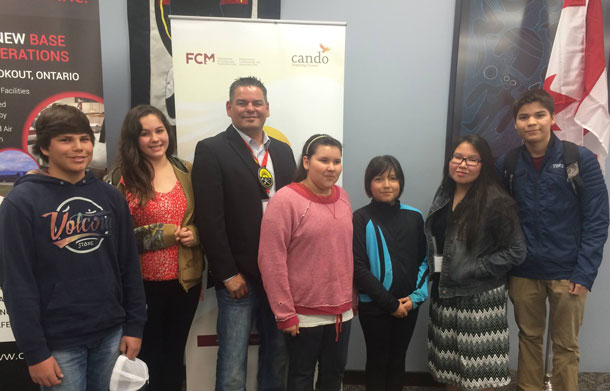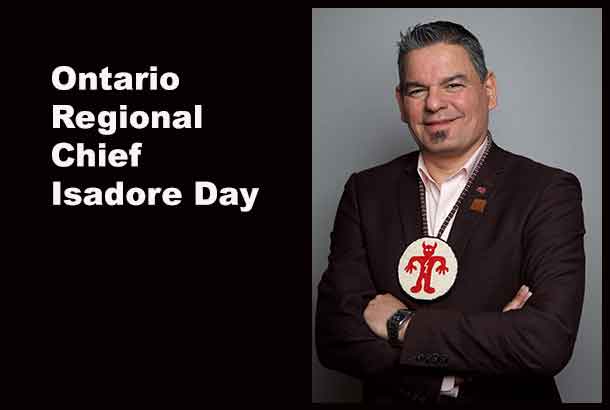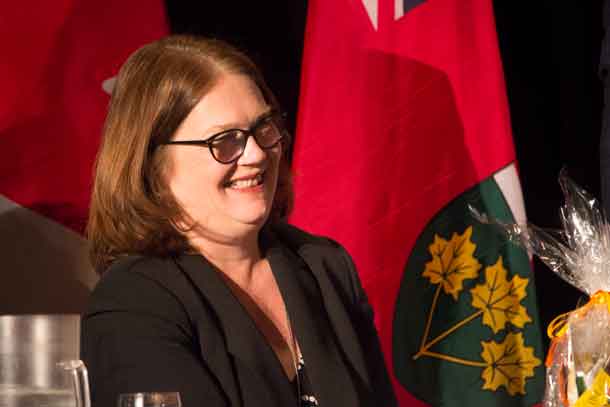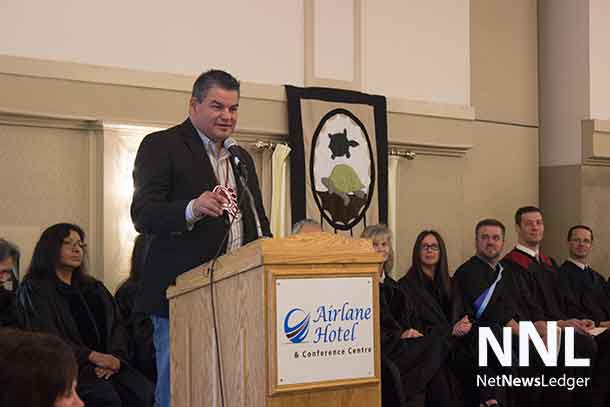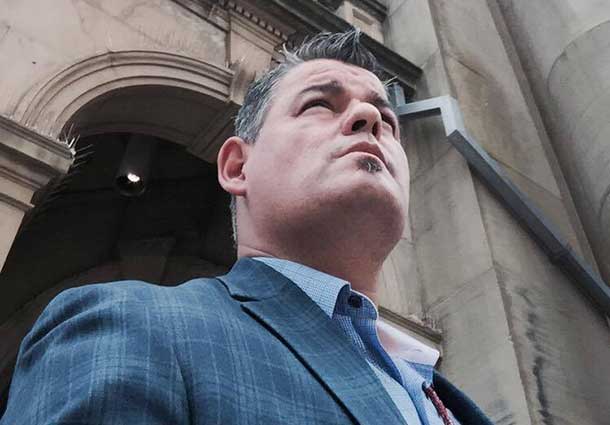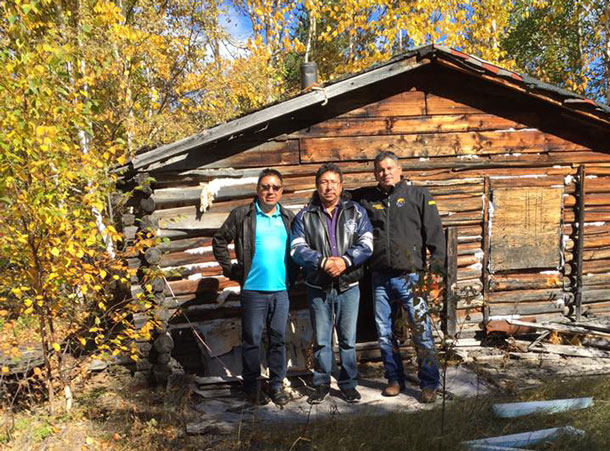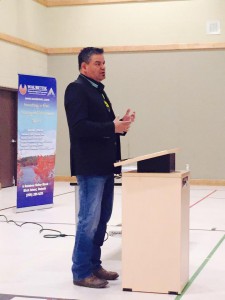
GARDEN RIVER FN – Waubetek Business Development Corporation are hosting their 26th Annual Economic Forum this week in Garden River First Nation entitled, “Thinking Globally, Wider Challenges, Markets and Opportunities.”
Waubetek officials are delivering reports on community consultations and planning tables that focus on natural resource development. In addition, they are reporting on the core programs that the corporation delivers to 27 First Nations in 5 major treaty regions.
Ontario Regional Chief candidate, Serpent River Chief Isadore Day provided an impromptu keynote address that focused on renewing an economic path for First Nations based on treaties.
Treaty-Based Economies Key
“A major flaw in many negotiations being hammered out at the table with industry, is that the Province has an ‘assumed authority’ over treaty lands that is unbalanced. The province must accept the reality that treaties, inherent rights, and title to the land, must translate into a fair share of the wealth, coming from those lands – there is no other alternative,” said Chief Day.
In recent months, First Nations have been stressing a need to change the way that Ontario approaches treaty as a discussion. Chiefs are concerned and growing more vocal about the unfair imbalance and lack of benefit to First Nations that continues at the hands of Ontario and companies wanting to access their lands.
Chief Day says that, “Issues like the Ring of Fire; issues like the transfer and sale of Ontario’s energy sector assets, energy contracts, issues like forest industry economies in Ontario and other major natural resource development; have huge implications to the future of First Nations in Ontario”.
“We stand firm as the title holders of natural resources,” stated Chief Day, “and for Ontario and industry to ignore this, it will be to the detriment of this provinces economy – let’s get it right.”
Day is a proponent of the approach that “If treaties are not going to be implemented fairly, then we must discuss treaty enforcement and compliance measures – our people will no longer be starved. First Nations are not satisfied with less than or a process that puts them in the back seat and the industry in the front and the province at the wheel. ”

